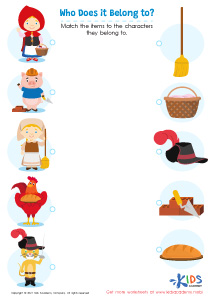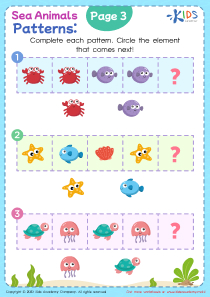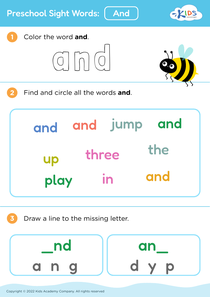Rhyming skills development Preschool Rhyming Words Worksheets
3 filtered results
-
From - To
Boost your child's early literacy with our engaging Preschool Rhyming Words Worksheets! Specially designed to support rhyming skills development, these printable activities help young learners recognize and produce rhyming words effortlessly. Rhyming not only enhances phonemic awareness but also builds a strong foundation for reading proficiency. Crafted by education experts, each worksheet offers fun and interactive exercises that make learning enjoyable. Perfect for classroom or home use, our rhyming worksheets encourage creativity, improve language skills, and develop a love for reading. Empower your preschooler with effective learning tools that spark curiosity and set the path for future academic success!


Rhyming Words Rhyming Worksheet


First Words: Picture Rhymes Worksheet
Rhyming skills are crucial for preschoolers as they form the foundation for early language development and future reading success. When children engage in rhyming activities, they become more aware of the sounds within words, fostering phonemic awareness—an essential skill for decoding and spelling. Phonemic awareness is the ability to hear, identify, and manipulate individual sounds in spoken words, which directly influences a child’s capability to learn to read and write.
Moreover, rhyming enhances children's vocabulary by introducing them to a variety of word patterns and sounds. This exposure not only broadens their word bank but also aids in the understanding of word meanings and structures. This can make learning new words easier and more enjoyable.
Rhyming activities also promote memory and cognitive development. The repetitive and rhythmic nature of rhyming helps preschoolers remember new information and sounds, thus reinforcing learning through repetition.
From a social perspective, rhyming fosters children's listening and speaking skills, crucial for effective communication. It also makes language play engaging and fun, encouraging participation and fostering a love for learning.
By nurturing rhyming skills through songs, poems, and playful language activities, parents and teachers can significantly boost a child's early literacy development, setting a strong foundation for future academic success.

 Assign to My Students
Assign to My Students







.jpg)









